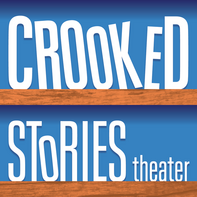WRITER’S NOTE: Rick and I are are struggling with the outline we started with on “Lake Regret”, and while we try to come up with another project, we are providing you with insight on our script “According to Plan” and how we went from concept to getting the project optioned, and the craziness that ensued afterwards.
My apologies for not posting here recently. It’s been a crazy last couple of weeks where I’ve been approached about my pilot script “Bounty” — we’ll see where it goes but the conversations have definitely been interesting.
In our last post, we talked about how it took us 78 days to finish the 98 page script, but that couldn’t be the end of it. We had to go back and edit the first draft, which is never going to be your best work, if you’re being honest about it (some of you even refer to that first draft as a “vomit draft”). Now, you may remember that I said I would write a couple of pages and then Rick would edit and and send me back additional pages, and we went back and forth that way until we finished that first draft. Now while we were editing along the way, it wasn’t the full-blown editing you’re probably used to. We were just looking for misspellings, continuation issues, and so on. The full re-write was still in front of us.
In addition to taking a critical eye to the writing, we were taking a look at some of the actual setup for the script. Here’s an example: This is a script that deals with early onset dementia and having a grandfather convince his grandson and one of his friends to drive him from St. Louis to New Orleans to recover a treasure he claims to have left there. Now I originally imagined the family as being African-American. This was an indie film and the black community is pretty underserved when it comes to that film segment. Rick was against that idea, for a couple of reasons. First, neither of us have the world view of what it is like to be African-American and we didn’t feel like we could adequately portray dialogue, lifestyles, customs, etc. Second, if we made the characters non-race specific, it would open it up to more producers, who could choose how they wanted to approach it.
Another thing that we had to do was a make a change to a significant plot point. The grandfather was originally going to be in an assisted living facility and the grandson and his friend were going to break him out of the facility and drive him to New Orleans. The problems with that, we decided, were two-fold. Breaking him out would immediately have legal authorities looking out for them, which might make it a bit interesting, but not make it very realistic. Second, the grandfather only has early onset dementia, not full-scale Alzheimer’s (which would render him incapable of making any sort of coherent communication), and because of that he would likely not be in an assisted living facility.
So what to do in that case? We reworked the plot so that the grandfather was at home, but there were instances that made it clear that he had some problems, such as wandering away from home, talking about a treasure that may or may not exist, and so on. For a screenwriter, this is, I think, the most important job the writer has, which is finding the little inconsistencies and problems that your script has. When you’re writing on your own I think finding those little problem areas are very difficult at times because a lot of writers have tunnel vision or they block out what might be a bad plot point or just plain bad writing because they are determined to wedge a plot point into their script. If you’re not writing with someone, then at least find people to read your script after it’s done and give you an honest assessment of the writing. And here’s something I’ve always done — I’ve always asked writers that are better than me to review my scripts and give me honest feedback. SimplyScripts is one of those places where you can post your script and get those types of reviews.
So the second rewrite took us another three weeks, and when that rewrite was done, I still don’t think we were satisfied. We took another swipe at it and finished that editing process in a couple of weeks. Again, why would we do this? Why wouldn’t we? We wanted our script to be at its absolute best, and just taking the first draft was never going to cut it.
We’d finished the draft. What now? We’ll get into what we did with the script after we finished it in our next post.
The further adventures of the screenwriting and marketing process of Lake Regret wherein Gary Howell documents his and Rick Hansberry’s screenwriting adventures from concept, to the writing, to how they handle disagreements, to marketing the script. Reproduced with permission





